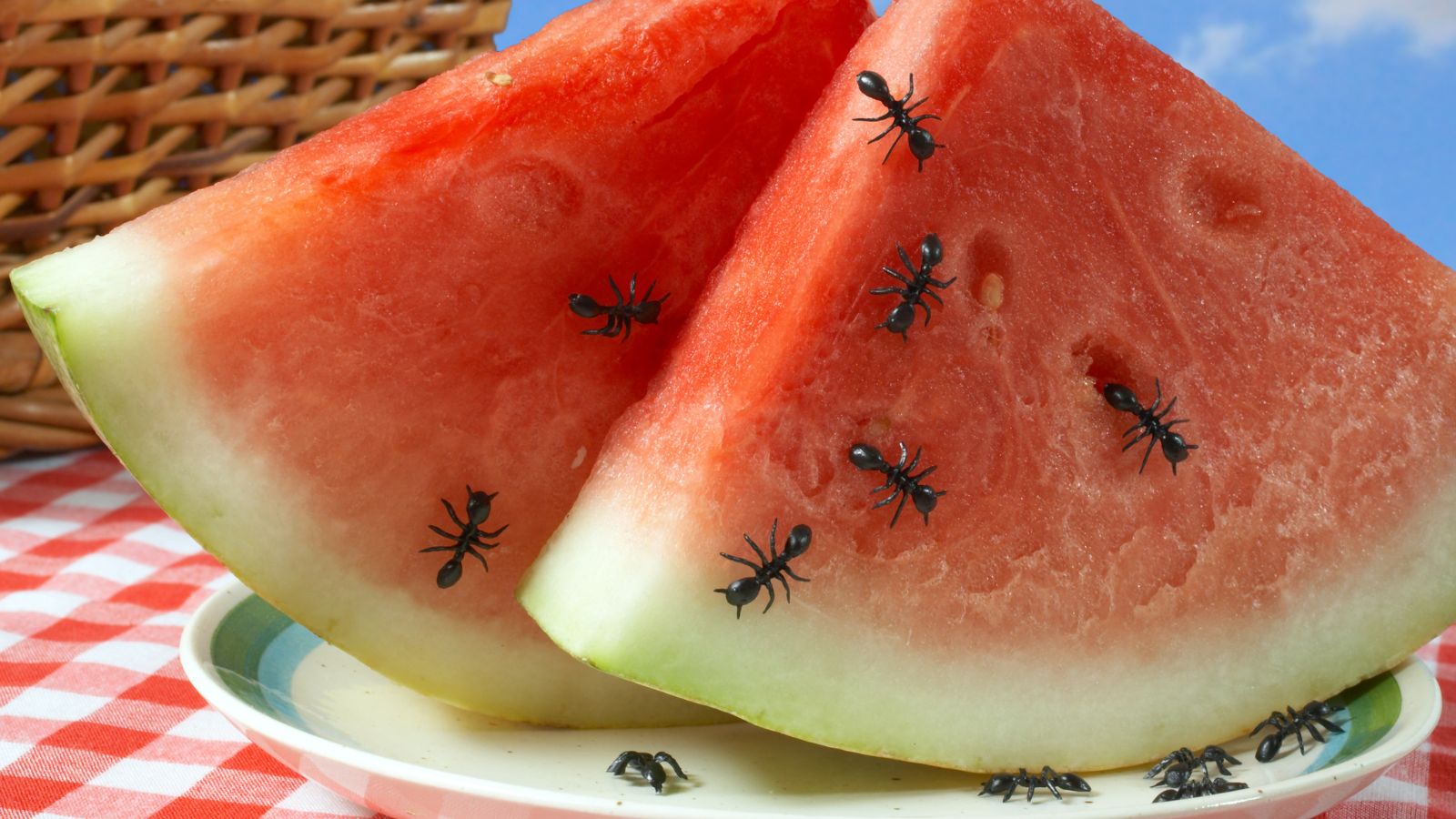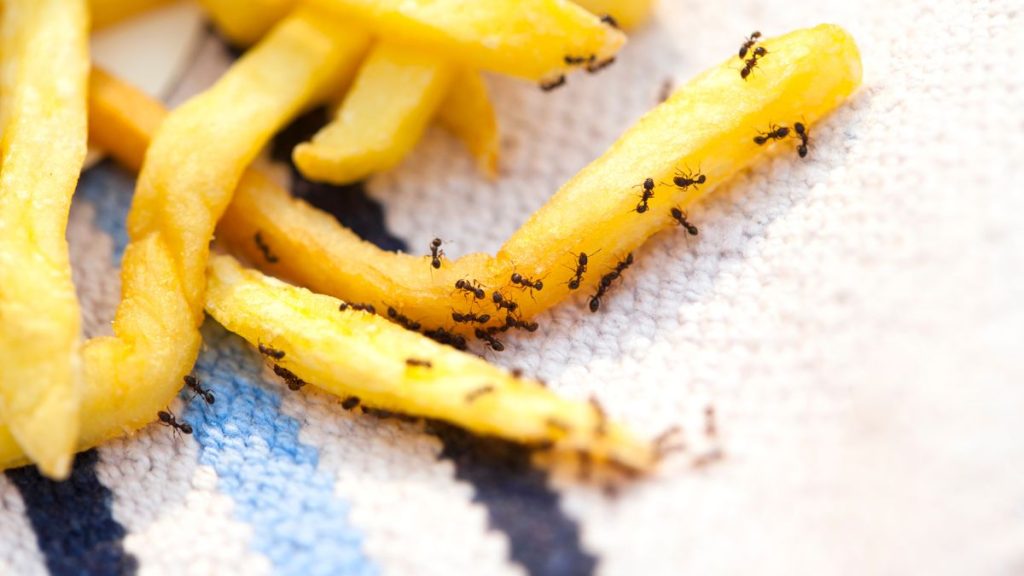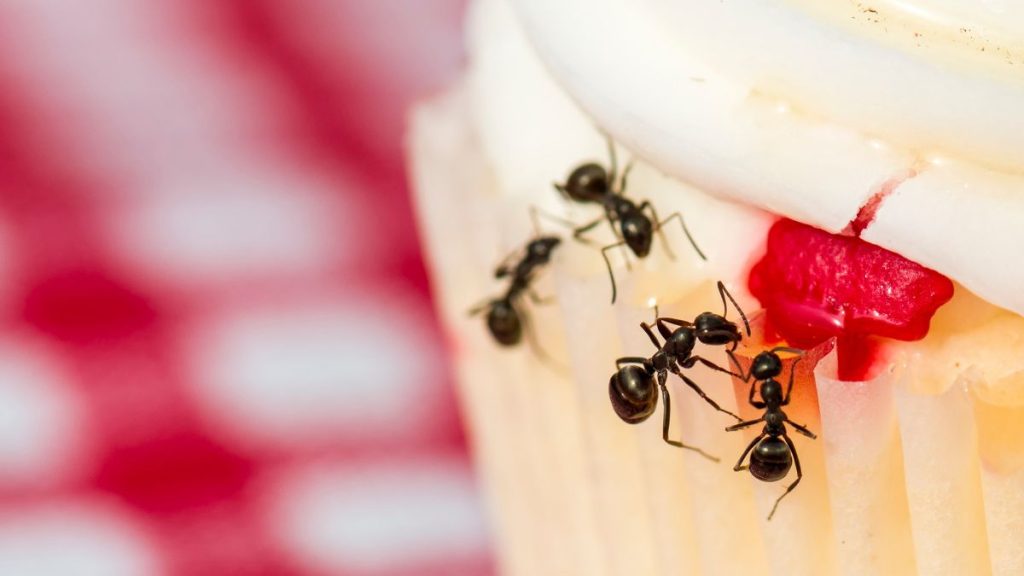Surprising Diseases Ants Can Transmit – How To Protect Yourself

These tiny invaders are more than just a nuisance; they’re a topic of health concern for many homeowners.
Ants are known to scavenge for food, and in their travels, they can come into contact with various germs that have the potential to spread diseases.
In your home, a single ant may seem harmless, but a colony working in unison can pose a risk to your well-being.
As different ant species invade households, they can carry bacteria and potentially contaminate food sources.
Understanding the link between ant infestations and health risks is crucial, as some species are known to be vectors for disease causing pathogens.
Let’s explore the common health risks associated with these industrious insects and what diseases they might bring into your home.
Types of Germs Ants Can Carry
You might be surprised to know that ants can be tiny transporters of a variety of germs. Let’s take a closer look at the specifics.
Bacteria
Salmonella: Often acquired from contaminated surfaces and foods, ants can transfer this bacterium, which may lead to food poisoning.
Staphylococcus: Commonly found on skin and objects, these bacteria can be spread by ants through contact.
Fungi
Aspergillus: A type of mold, Aspergillus may latch onto ants from infected plants or soil.
Parasites
Roundworms: These can attach to ants from the soil, potentially leading to the spread of parasitic infections.
Viruses
Poliovirus: Although less common, ants can pick up viruses like poliovirus from contaminated environments and act as mechanical vectors.
Diseases Transmitted by Ants

You may not think of ants as disease carriers, but these tiny pests can transmit a variety of illnesses to humans.
Understanding the diseases they can spread is important for your health and safety.
Salmonellosis
When ants invade your food, they can contaminate it with Salmonella bacteria.
If you consume this tainted food, you might experience foodborne illness with symptoms like diarrhea, fever, and abdominal cramps.
Dysentery
Ants can also spread Shigella bacteria, which cause dysentery, a severe form of gastroenteritis.
Symptoms often include bloody or watery diarrhea and can be quite serious.
Cholera
Contaminated water and food sources can become breeding grounds for Vibrio cholerae, the bacteria that cause cholera.
Ants traversing these areas can contribute to its spread, leading to severe dehydration and diarrhea.
Typhoid fever
A more rare yet serious condition, typhoid fever, can be spread when ants come into contact with Salmonella Typhi.
It’s vital to keep your living spaces clean to avoid this disease.
Polio
Polio is less common today due to vaccination, but historically, ants were suspected as a possible vector for the poliovirus, especially in unsanitary conditions.
Pink eye
If ants come into contact with your eye area, they can potentially spread bacteria that cause conjunctivitis, commonly known as pink eye, characterized by redness and inflammation.
Skin infections
If ants bite or crawl on your skin, they can introduce staphylococci or streptococci bacteria, possibly leading to painful skin infections or reactions.
How Ants Spread Disease

Ants have the potential to be vectors for various diseases due to their habits and physical makeup.
Through Contact with Food
When ants invade your pantry or picnic, they can transmit harmful germs to your food.
This happens because ants search for food in unhygienic places like trash bins and can collect pathogens on their bodies, which are then deposited on your food during their quest for sustenance.
To protect your edibles, store them in sealed containers and keep surfaces clean to reduce the chance of contamination.
Via Bites and Stings
Although not all ants bite or sting, those that do may cause more than just itching or burning sensations.
Their venom can provoke allergic reactions such as anaphylaxis in sensitive individuals.
Additionally, ant venom may carry bacteria that can lead to infections or secondary infections, necessitating medical attention, perhaps even a trip to the hospital.
Through Waste and Nest Materials
Ants establish nests in various locations, including inside houses, which may consist of materials like soil and sawdust.
These materials, coupled with ant feces, can become a hazard if they contaminate water sources or come into contact with humans or pets.
This close proximity raises the risk of disease transmission from the nest to your living space.
Preventing Ant-Borne Diseases
Maintain a Clean Environment
Keeping your living space clean is a crucial step in preventing ant infestations.
Promptly clean up spills, especially sweet substances that attract sugar ants, and regularly vacuum to remove crumbs and food particles.
Ensure that your trash cans are sealed tightly, and waste is disposed of regularly to not lure pavement ants and others into your home.
Store Food Properly
Regularly inspect and use sealed containers for food storage, reducing the chances of attracting carpenter ants, pharaoh ants, and other species.
This simple step can significantly lower the health risks associated with ant contamination in your kitchen.
Seal Entry Points
Inspect your home for cracks or small crevices where ants can enter. Using caulk to seal these openings can help prevent the entry of fire ants and other varieties.
Pay special attention to areas around your bathrooms and toilet, where moisture can attract ants.
Implement Control Measures
When an infestation occurs, effective control is key. Consider using baits, traps, or pesticides designed for the specific type of ant you’re dealing with.
In the case of persistent infestations, don’t hesitate to contact a professional pest control service.
Personal Hygiene and Care
Hygiene plays a major role in prevention.
Wash your hands frequently, disinfect surfaces after coming into contact with ants, and address any nests or trails immediately.
If you suffer from bites or stings, especially those from fire ants known to provoke allergies or asthma reactions in some people, seek medical attention as needed.